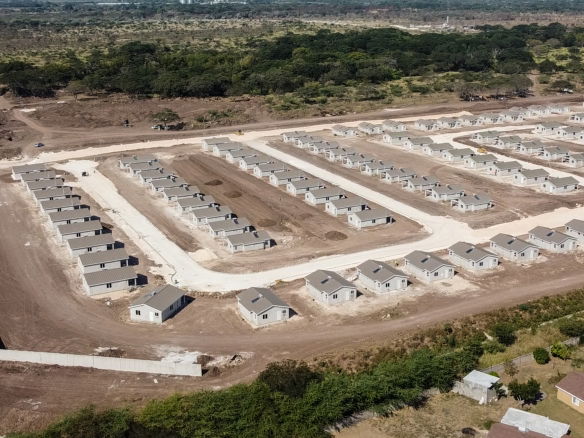Buying a first home is both an exciting milestone and one of the largest financial investments most people will ever make. In Jamaica’s evolving real estate landscape and indeed, in many other markets being prepared can save you time, money, and stress. In this article, we’ll explore eight common pitfalls new home buyers often fall into, and provide practical tips to help you navigate around them. Whether you are browsing real estate listings in Kingston or scoping out seaside properties along the coast, understanding these mistakes will help ensure you’re making a sound, future-proof decision.
Table of Contents
- 1. Overlooking Additional and Ongoing Costs
- 2. Not Getting Pre-Approved for a Mortgage
- 3. Skipping Professional Help (Agents, Inspectors, Attorneys)
- 4. Being Too Picky or Lacking Vision
- 5. Ignoring Location and Future Growth
- 6. Failing to Plan for Lifestyle Changes
- 7. Making Emotional Decisions without Thorough Research
- 8. Neglecting the Closing Process and Final Costs
- Conclusion
- Frequently Asked Questions
1. Overlooking Additional and Ongoing Costs
A mortgage is typically the largest expenditure for homeowners, but it’s far from the only one. It’s easy to get so focused on monthly payments that you forget about other recurring expenses.
What to Watch For:
- Property Taxes and Insurance: In Jamaica, property tax rates vary depending on the assessed value of your home. You’ll need to budget for annual tax payments and homeowner’s insurance, especially in coastal areas prone to storms.
- Utilities and Maintenance: Count on paying for water, electricity, internet, and basic household upkeep. If you are moving from a smaller apartment, utilities for a standalone home can be higher than you might anticipate.
- HOA or Community Fees: Some gated communities and apartment complexes charge monthly or annual fees for security, landscaping, and maintenance of common areas.
Pro Tip: Before signing the dotted line, create a realistic monthly budget that factors in your mortgage, property taxes, homeowner’s insurance, and a cushion for unexpected repairs. This gives you a holistic view of affordability.
2. Not Getting Pre-Approved for a Mortgage
Too many eager buyers find a home they love only to realize they can’t secure the needed financing. This can lead to disappointment, delays, and potentially losing out on the property you wanted.
Why Pre-Approval Matters:
- Stronger Negotiating Power: Sellers will take your offer more seriously if you have a pre-approval letter in hand.
- Realistic Budgeting: You’ll know exactly how much you can spend, helping you avoid looking at homes out of your price range.
- Faster Closing: A pre-approved mortgage often leads to a smoother, quicker closing process once you make an offer.
How to Proceed:
Choose a reputable lender and provide them with proof of income, employment, and other relevant documents. Compare quotes to get the best interest rate possible. Once pre-approved, you have a clear sense of your purchasing power.
3. Skipping Professional Help (Agents, Inspectors, Attorneys)
Buying real estate is a complex transaction. You’ll typically need a trustworthy real estate agent, a competent inspector, and possibly a real estate attorney to review contracts.
Common Pitfalls:
- Overlooking Structural or Legal Issues: If you skip inspections, you risk buying a home with hidden defects like mold, plumbing failures, or serious structural damage.
- Navigating Contracts Alone: Real estate contracts are often loaded with legal jargon. An experienced attorney can help you understand contingencies, closing costs, and other clauses to protect your interests.
Benefit of a Real Estate Agent:
Local agents in Jamaica often have a close pulse on neighborhood trends, new listings, and price fluctuations. They can guide you to safe, convenient neighborhoods, help you avoid overpriced properties, and advise you on government incentives or loan programs.
4. Being Too Picky or Lacking Vision
Two common extremes plague new buyers:
- Being Too Picky: Some buyers have an impossibly long wish list—wanting a home to be turnkey and stylish in every aspect.
- Lacking Vision: Others dismiss houses that only need minor cosmetic updates, missing out on potentially great deals.
Strike a Balance:
- Needs vs. Wants: Identify which features are essential (e.g., location, number of bedrooms, proximity to schools or transportation) versus those that are mere preferences (like paint colors or certain landscaping styles).
- Potential vs. Reality: A dated kitchen could be renovated to suit your taste, whereas a terrible commute or a structurally unsound property is much harder to fix.
Practical Example:
If you find a home in Montego Bay with good bones but outdated cabinets and flooring, look beyond the aesthetic flaws and consider its long-term potential. Minor renovations can transform the space into your dream home.
5. Ignoring Location and Future Growth
In real estate, “location, location, location” is more than just a cliché. While you can always renovate a home’s interior, you can’t move it to a better neighborhood.
Key Factors to Consider:
- Commute: If you work in Kingston, buying a property far inland may mean longer travel times.
- Local Amenities: Proximity to schools, hospitals, supermarkets, and recreational spots can significantly enhance your quality of life.
- Potential Resale Value: Even if you’re not planning to sell anytime soon, a well-located property typically retains or increases in value more reliably.
Long-Term Outlook:
Will your neighborhood be improving or deteriorating in the next five to ten years? Investigate local zoning laws, planned developments, and infrastructure upgrades. Future growth can bolster both your investment and lifestyle.
6. Failing to Plan for Lifestyle Changes
The house you buy today should also suit your tomorrow. Many first-time buyers forget to factor in potential family or career changes, and end up moving sooner than planned.
Common Oversights:
- Family Expansion: If you plan to start or grow a family, that one-bedroom condo might feel cramped in a couple of years.
- Work Relocation: A job change requiring frequent travel or a new office location can drastically affect where you want to live.
- Aging in Place: While this is typically less of a concern for younger buyers, if you’re looking for a long-term home, consider accessibility features or layout if you expect to stay there into later years.
Forward Thinking:
When browsing listings on NewLocay.com, envision whether that property will meet your needs in three to five years. Being realistic about life changes can save you from the hassle and expense of relocating prematurely.
7. Making Emotional Decisions without Thorough Research
Buying a home is emotional—no doubt about it. The excitement of imagining yourself in a new space can cloud your judgment. However, a home purchase is as much a financial decision as it is an emotional one.
Watch Out For:
- Bidding Wars: Getting caught in competition can push you to bid beyond what’s sensible.
- Ignoring Red Flags: A beautiful curb appeal might make you overlook structural issues or an inconvenient location.
- Over-Improving: Taking on costly renovations that may not yield a proportional increase in the property’s market value.
Research is Key:
Consult multiple sources. Look at comparable sales in the area, review market data, and check local property tax rates. Make sure your emotions are balanced by solid data and professional advice.
8. Neglecting the Closing Process and Final Costs
Even if you’ve done everything right up to this point—budgeting properly, finding a suitable neighborhood, and securing a mortgage—failing to prepare for closing day can bring unpleasant surprises.
Common Closing Costs:
- Attorney Fees: Having a lawyer review the final contract is vital in Jamaica, where paperwork can be complex.
- Stamp Duty and Transfer Tax: Depending on the property and current government regulations, these can be significant.
- Final Property Inspection Fees: If you schedule a final walkthrough or additional inspection after initial negotiations, factor in those costs too.
Closing Day Tips:
- Review the Documents Thoroughly: Make sure the deed and transfer details are accurate.
- Ask Questions: If something is unclear—like an additional fee or contract clause—seek clarification before you sign.
- Have Your Payment Ready: Whether it’s a cashier’s check, wire transfer, or other payment method, ensure the funds are accessible on closing day to avoid delays.
Conclusion
First-time home buying doesn’t have to be an overwhelming process. By proactively addressing these eight common mistakes, you’ll be better equipped to handle the complexities, reduce stress, and set yourself up for long-term success. From thorough financial planning to hiring the right professionals and looking beyond superficial details, every step can bring you closer to owning a home that meets your present needs and future goals.
Remember:
- Factor in all costs, from taxes and insurance to basic upkeep.
- Get pre-approved to determine a realistic budget and secure stronger bargaining power.
- Hire experienced professionals—inspectors, agents, attorneys—to guide you wisely.
- Carefully weigh location, long-term plans, and potential for resale value.
- Keep your emotions in check with solid research and budget constraints.
- Be ready to handle the closing intricacies and associated fees.
Ultimately, purchasing a home is an investment in your future. With proper foresight and guidance, you’ll avoid these common pitfalls and unlock the door to a rewarding new chapter in your life. If you’re ready to begin your journey, explore NewLocay for the latest listings and resources that can help you make an informed, confident decision.
Frequently Asked Questions
Should I skip a professional home inspection to save money?
It’s generally not advisable. A professional inspection can uncover hidden issues; such as structural damage, faulty wiring, or plumbing leaks that might cost significantly more to fix later on. The inspection report also provides leverage to negotiate with the seller if repairs are needed.
What’s the difference between mortgage pre-qualification and pre-approval?
Pre-qualification is a preliminary estimate of how much you might be able to borrow, based on self-reported income, credit score, and debts.
Pre-approval is more in-depth; the lender verifies your financial information and gives you a formal letter stating how much they’re willing to lend. Pre-approval carries more weight with sellers and often speeds up the home-buying process.
Should I use all my savings for the down payment?
While a larger down payment can reduce your monthly mortgage costs, leaving yourself with no emergency funds can be risky. You’ll need cash reserves for closing costs, potential repairs, and future maintenance. Striking a balance putting enough down to lower your monthly payments, while retaining some savings for unexpected costs is often the safest approach.
How can I be sure I’m choosing the right neighborhood?
Research is key. Look into school ratings, local crime statistics, nearby amenities (grocery stores, medical facilities, entertainment), and commute times to work. If possible, visit the neighborhood at different times of day to get a feel for noise levels, traffic, and community vibe. Remember that location not only affects your lifestyle but also plays a significant role in long-term resale value.





